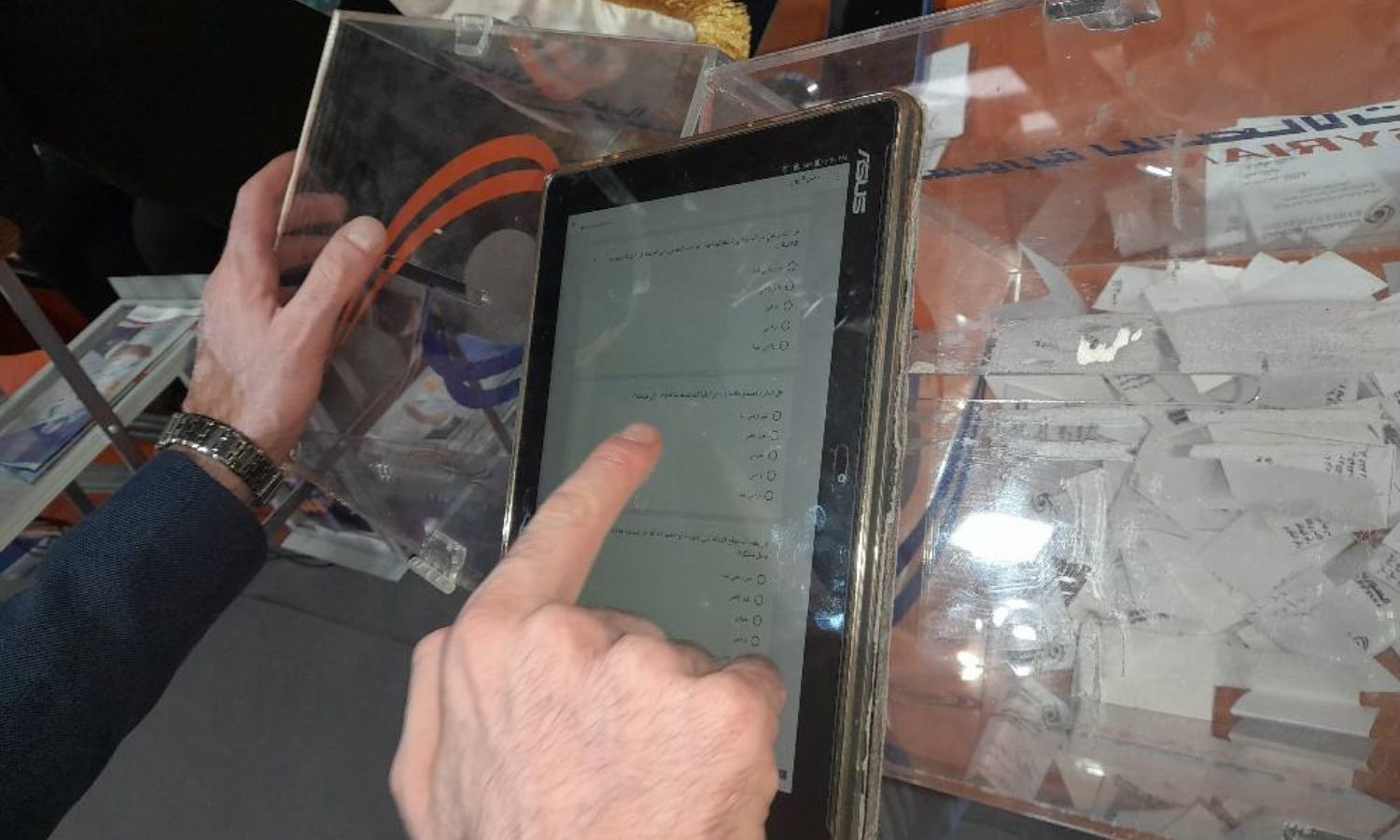



“There is no internet, and we can’t afford to buy new mobile phones. This makes it difficult for us to make electronic payments,” said Ibrahim, 49, who spent a whole day trying in vain to pay his bills through the Syriatel app “Akrab Elik.”
The high use of the app hindered the payment process, as it seems the reason is the network overload. Ibrahim, who lives in the northern al-Raml neighborhood in Latakia, used to pay all his bills through the app without any difficulties until about two months ago when electronic payment became mandatory at the beginning of 2024.
The problem of poor internet is also a major obstacle, especially in some neighborhoods of Latakia, such as Bsnada and Aldaatur, and most of the villages in the province where the internet network is very poor, and the app requires a “4G” network to function properly, as happened with Ilham, a 37-year-old government employee, who had to pay the bill at her official workplace in the finance department in the city center.
Although electronic bill payment saves a lot of effort and trouble for the elderly, the lack of a modern mobile phone hinders the task, as is the case with Abu Ismael, 67, a retired employee who owns a very old mobile phone, barely enabling him to say “hello” on it.
Syria is known for the high prices of modern mobile phones. The prices of new phones start from at least two million pounds (every US dollar equals 14,600 pounds), while used ones cost no less than one million pounds. Such amounts are difficult to afford for the majority of families in the province.
Abu Ismael was forced to seek the help of his young neighbor to pay his bills and felt embarrassed after exhausting him with three hours of attempts, only to end in failure. Then his neighbor told him that he would try at night when the network pressure was less, and finally, the task was successful.
The majority of the people of Latakia, who can barely afford their daily food, do not have enough money to put in their accounts and pay the bills from them. This means that every time they pay a bill, they will have to go to the store, top up their balance, and then complete the payment process in a manner similar to traditional payment methods.
After the 100% increase in government salaries in August 2023, the minimum wage reached 186,000 pounds, while the average cost of living in regime-controlled areas exceeds 10.3 million Syrian pounds.
Both the water and telecommunication establishments announced the start of electronic bill payments at the beginning of 2024 before the two establishments announced the existence of regular payment centers through traditional methods.
However, the problem lies in the lack of sufficient traditional centers. For example, in Latakia, the “March 8” center was designated for traditional payment, and it is a center far from the majority of the villages, which necessitates the availability of more centers while improving the logistical services related to the electronic payment process, such as adequate internet and a network capable of withstanding extra strain during payments.
Citizens can complete the electronic payment process through banks, such as Commercial, Real Estate, and Islamic banks, or through the software applications of the two mobile network providers in Syria, “MTN” and “Syriatel.”
In a survey conducted by the United Nations in 2022 on e-governments, Syria ranked 156th globally out of a total of 193 countries, while its ranking in 2020 reached 131st globally, indicating a decline in the status of electronic services over the years in Syria.
if you think the article contain wrong information or you have additional details Send Correction